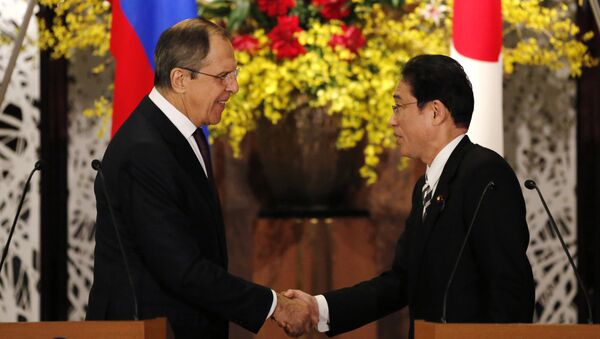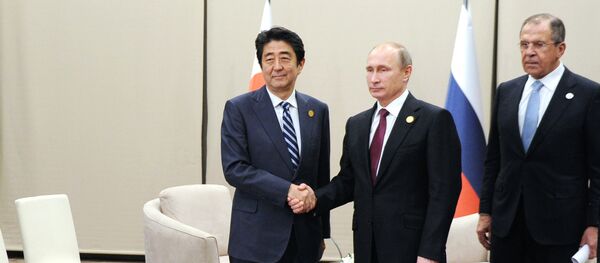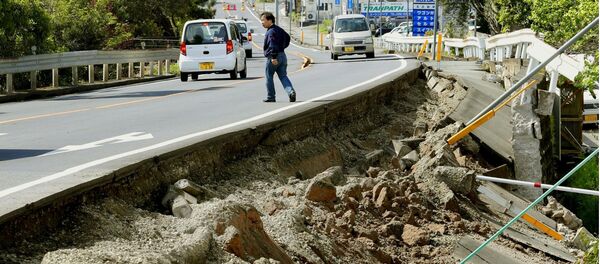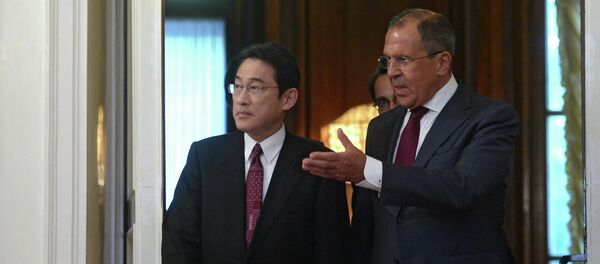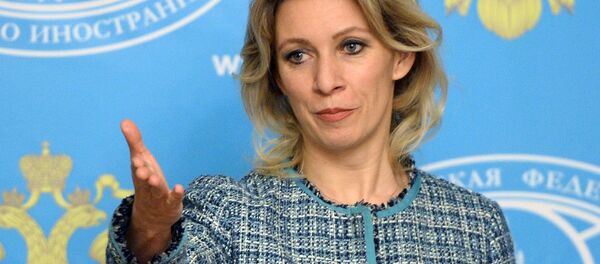Commenting on the background to the diplomatic good will visit in an analysis for Russian business magazine Expert, Russian geopolitical analyst Gevorg Mirzayan noted that at first glance, "Russian Japanese relations are exceptional in their astonishing irrationality."
"It would seem that both countries would benefit from almost a strategic partnership level of relations. Russia can offer Japan the energy it requires, as well as resources and a market for the expansion of Japanese capital. But more importantly, the Kremlin could become a geopolitical balance, helping Tokyo to find a formula to defend against an ever-strengthening China. After all, Russia is one of the few countries in the region that does not hold animosity for Tokyo over Japan's war crimes in the first half of the 20th century."
"In turn," Mirzayan notes, "Japan can provide Russia with technology, industrial goods, investment and innovations, and actively participate in the development of the Russian Far East."
"The Kremlin," for its part, "is ready to sign such a treaty immediately, and then begin to build a strategic partnership…Without effective cooperation with Japan, there can be no complete 'eastern pivot' in Russian foreign policy, but only a 'Chinese tilt'."
"However, Tokyo has one condition: the Japanese want the South Kuril Islands, which the USSR took from Japan after the Second World War."
"The problem of the peace treaty is the issue of the northern territories," Japanese Foreign Minister Fumio Kishida said ahead of Lavrov's visit, referring to the Kuriles.
And the territorial issue, Mirzayan emphasizes, is the key stumbling block. "The two sides cannot agree on the territorial issue. The Japanese demand all four islands and will not agree to any compromise solution."
Moreover, according to Center for Japanese Studies head Valeria Kistanova, Tokyo has also suggested another option: that Russia gives up two islands now and two more at a later point.
In any case, Mirzayan notes, now "Russia is not planning on giving anything up," as the Foreign Ministry's statement shortly before Lavrov's departure made perfectly clear. The statement clearly said that progress on any peace treaty "would remain impossible without Japan's recognition of post-war realities."
"And Russia's stubbornness can be explained not only by the fact that Moscow does not want to throw away its strategic territories, and not just because Japan needs the peace treaty and an improvement in relations more than Russia does…but also because the Kremlin is not convinced in the reliability of any agreements with Japan."
"In order to find compromise, it is necessary to maintain a continuous, uninterrupted dialogue. But Japan made the decision to limit contacts with us at a certain point. In my opinion, this does not meet the interests of the Japanese government or the Japanese people," Lavrov emphasized.
At the same time, the minister noted that "despite pressure from its partners, and particularly the United States, our Japanese friends are nevertheless committed to maintaining these relationships."
There are other options, Mirzayan explained, for solving the territorial dispute that do not involve Russia giving up its sovereignty over the Kuriles. This, for example, may include the creation of a special economic zone with preferences for Japanese investment. "Such a scenario would bring a number of benefits for both Japan (with Prime Minister Abe being able to say that he has returned partial control over the islands), and for Russia, since Japanese investments would help the islands' economy."
"These discussions would continue, most likely in Tokyo, where the Russian president would arrive with a return visit," a prospect which requires only the setting of a specific date, according to the Russian Foreign Ministry.
"Experts and diplomats acknowledge that they have been preparing this series of visits for several months. The main obstacle had been for Abe and Putin to voice at least a framework for a compromise. And given that the visits have been discussed, this seems to indicate that a formula for a compromise framework has finally been determined," Mirzayan concludes.

